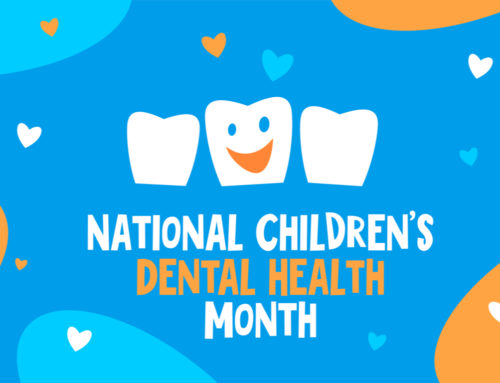Your Guide to Oral Psoriasis
 An estimated 2 to 3 percent of the population suffers from psoriasis
An estimated 2 to 3 percent of the population suffers from psoriasis
of the skin. We are a dental practice, so you might be wondering why we are bringing up a skin condition.
While psoriasis most typically appears on the skin, the autoimmune condition can also develop in the mouth, especially if you already have psoriasis on your skin. If something seems off in your mouth or you see changes in your tongue, it might be oral psoriasis.
Many people have psoriasis in their mouth and don’t realize it. This may be because many people with psoriasis seek help from dermatologists or a primary care provider when managing their psoriasis conditions. These professionals don’t examine the mouth as closely as a dental professional, which typically leads to dentists often being the first care providers to notice the signs of oral psoriasis.
While oral psoriasis has always been considered relatively rare, many medical experts now believe this condition is not as rare as once thought; rather, it is underdiagnosed.
It is also important to note that while oral psoriasis only affects the inside of your mouth, even if you have never been diagnosed with psoriasis of the skin, you can still develop oral psoriasis.
Read on to learn about oral psoriasis, its symptoms, risk factors, myths, diagnoses, and management tips.
What Is Psoriasis and Oral Psoriasis
Psoriasis is a chronic inflammatory autoimmune condition that causes the immune system to become overactive, causing skin cells to multiply too quickly.
Psoriasis can affect different parts of your body, such as the scalp, the skin, and even your fingernails. Less common and often overlooked is oral psoriasis, which presents itself in and around the mouth.
Oral psoriasis can affect the inside of the cheeks, the tongue, and the gums. Like other forms of psoriasis, it can cause anything from redness, scaling, lesions and breaks in the skin to odd-looking patches and discolorations.
While it can be unsightly and uncomfortable for some, psoriasis is not contagious and is treatable.
What Causes Oral Psoriasis
There is still much that is unknown about what causes oral psoriasis, but it is believed that genetics and environmental factors play a role.
Gum disease and poor oral health are also leading factors. Exactly why it is crucial to stay on top of oral health care and regular dental cleaning and exams.
Some believe that fungi cause psoriasis. This is not true. They are likely getting oral psoriasis confused with oral thrush, a fungal mouth infection.
Oral thrush, also called oral candidiasis, typically appears as a strange white rash inside your mouth. Whereas psoriasis is an auto-immune condition that usually shows up as irregular red patches with raised yellow or white borders, similar to a geographic tongue.
While it is possible to have both psoriasis and a fungal infection, such as oral thrush, at the same time – they are not the same.
Symptoms Of Oral Psoriasis
Not all oral psoriasis symptoms are severe. Some go unnoticed until a dentist finds them during an annual oral exam.
When symptoms are present, some can cause pain and discomfort. A few of the most common oral psoriasis symptoms include:
- Sores inside the mouth that are flat and yellowish-white in color or white and elevated.
- Lips that appear dry and crusted.
- Red patches on the tongue that resemble a map, called geographic tongue.
- Grooves or cracks in the tongue.
- Temporomandibular joint (TMJ) pain.
- A painful sensation in the mouth when eating spicy foods.
- Changes in taste perception.
- While rarer, some people experience peeling of the skin on their gums.
Oral psoriasis affects lips, the insides of cheeks, and/or the tongue; however, it can appear anywhere in your mouth.
Conditions That Mimic Oral Psoriasis
As mentioned, most people do not have symptoms of oral psoriasis. However, if symptoms are present, they can be very similar to other oral health problems.
Since the symptoms of oral psoriasis vary so greatly, and no fool-proof diagnostic test for oral psoriasis exists, doctors and dentists typically first attempt to rule out other more common and more serious oral health problems before suspecting and making this diagnosis.
Oral health problems that oral psoriasis can mimic include:
- Oral thrush
- Leukoplakia
- Squamous cell carcinoma
- Geographic Tongue
These are only a few conditions that could have similar symptoms to oral psoriasis. Once your dentist rules out these other conditions, they’ll begin treatment for oral psoriasis.
The good news is that oral psoriasis can be treated with medication or lifestyle changes, which we will discuss a little further down.
How Dentists Detect and Diagnose Oral Psoriasis
How a dentist detects oral psoriasis depends on several factors.
If you know that you have psoriasis of the skin and list it as a medical condition on your intake form, this will be a red flag for your dental hygienist and dentist to ask questions and pay close attention to any signs of oral psoriasis during your dental exam.
If you do not have psoriasis of the skin and are unaware of any visible symptoms of psoriasis, your dental hygienist or dentist might be the first to notice something isn’t right. If they see sores in your mouth, red patches, peeling, or other mouth lesions, they might perform further testing, such as an oral tissue biopsy, to diagnose oral psoriasis.
As mentioned, there isn’t a specific diagnostic test for oral psoriasis. A tissue biopsy may not establish that you have oral psoriasis. Still, it can help diagnose or rule out other conditions.
Oral Psoriasis Symptom Management and Treatment Options
You have many ways to manage oral psoriasis. If your symptoms cause no discomfort, you can typically ignore them unless your doctor or dentist advises otherwise.
For example, although a geographic tongue (which is how oral psoriasis often presents) may appear unsightly, this condition usually disappears on its own without causing oral discomfort.
However, treatment is often necessary when symptoms become uncomfortable or downright painful. Here are a few treatment options that might be considered if you have oral psoriasis.
Medication
Systemic treatment isn’t usually recommended if the symptoms are limited to your mouth. However, if you also have psoriasis of the skin and you experience an oral outbreak, a round of your usual psoriasis medication may help nip your outbreak in the bud.
In addition, topical anesthetic gels or liquids can ease oral pain, and particularly troublesome oral psoriasis manifestations can be treated with steroid ointments or injections.
An immunosuppressant medication, such as cyclosporine, may be prescribed if your symptoms are especially severe. Anti-inflammatory drugs, such as corticosteroids, are also sometimes suggested in more severe cases.
Diet
Research shows that anti-inflammatory foods can help minimize psoriasis outbreaks and symptoms. It is shown that eating a healthy diet with at least one serving of fruit per day can be very helpful because they help fight inflammation.
Foods that fight inflammation include:
- Cherries
- Salmon
- Sardines
- Thyme
- Sage
- Cumin
- Ginger
- Olive Oil
- Oatmeal
- Eggs
- Non-fat Greek yogurt
Healthy eating habits benefit the body, so you should do this even if medication is taken along the side.
While there are foods that can be helpful if you have oral psoriasis, there are foods and drinks believed to potentially make psoriasis outbreaks and symptoms worse.
Foods that you might want to avoid include:
- Nightshade fruits and vegetables
- Spicy foods
- Acidic foods
- Full fat dairy
- Sugar
- Gluten
- Processed foods
- Alcohol
- Caffeine
Quit Smoking
Most inflammatory immune-related conditions have been associated with smoking, including psoriasis. Studies have shown that smoking can both cause psoriasis and worsen psoriasis symptoms. Quitting smoking can decrease the risk of developing psoriasis.
Other Painful Issues Oral Psoriasis Might Cause
If your oral psoriasis causes you to experience pain in your temporomandibular joint, then this pain could signal psoriatic arthritis. Up to 30 percent of all people with psoriasis also have psoriasis arthritis.
Psoriatic arthritis affecting the temporomandibular joint can be treated with corticosteroid injections for immediate pain and swelling reduction. However, long-term management of psoriatic arthritis typically involves treatment with a biologic drug that helps prevent further joint deterioration.
How To Prevent Oral Psoriasis
There are some things patients can do to minimize the risk of oral psoriasis.
First and foremost, maintaining good oral hygiene is of utmost importance. This should include using an alkaline mouth rinse. A do-it-yourself rinse can be made from baking soda and water.
Smoking is a risk factor for various oral problems, including oral psoriasis. If you smoke, you should quit. It is also important to avoid alcohol and find ways to manage stress, both of which can be psoriasis triggers.
Another way to ward off any oral issues that might lead to oral psoriasis is to have regular dental checkups.
Schedule a Dental Appointment
Any time you notice a strange change in your mouth, such as white patches inside your cheeks or an unusual-looking tongue, notify your dentist.
The sooner you talk to your dentist near you, the sooner they can perform an oral exam to determine the cause of the strange symptom(s) and suggest proper treatment.
Diagnosing and treating oral psoriasis isn’t complicated. Contact the staff at Snodgrass-King to schedule an oral exam today.


